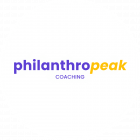⏱️ 11 min read | 2051 words
📋 In This Article
Many neurodivergent entrepreneurs find themselves drawn to the flexibility and autonomy of self-employment.
You’re looking for a work model that actually fits your brain, not one that forces you into a rigid box.
You want to leverage your unique strengths, not constantly battle your challenges.
Introduction: The Appeal of Freelancing for ADHD Minds
Why Autonomy Matters: Flexibility & Control
Let’s be honest: traditional 9-to-5s often feel like a cage for ADHD brains.
The fixed schedules, the endless meetings, the lack of control over your day – it’s a recipe for burnout.
Freelancing, on the other hand, offers unparalleled flexibility.
You get to set your own hours, decide when and where you work, and tailor your environment to suit your needs.
This autonomy isn’t just a perk; it’s a critical factor in managing ADHD symptoms effectively.
Imagine being able to work during your peak productivity windows, even if they’re not 9 AM to 1 PM.
This freedom can dramatically reduce stress and increase overall well-being.
Tapping into Strengths: Hyperfocus & Creativity
Neurodivergent entrepreneurs possess incredible strengths often overlooked in conventional workplaces.
Hyperfocus, for example, can be an absolute superpower for freelancers.
When you’re deeply engrossed in a project you love, you can produce exceptional work at lightning speed.
Your creative thinking, ability to connect disparate ideas, and innovative problem-solving skills are also highly valued in the freelance market.
Many clients crave fresh perspectives and unique solutions – something ADHD minds excel at.
Freelancing allows you to lean into these natural talents, making your work feel less like a chore and more like play.
Common Misconceptions & User Intent
Some people assume freelancing with ADHD is a disaster waiting to happen.
They picture missed deadlines, disorganisation, and financial instability.
And yes, those can be challenges if you don’t have the right systems in place.
But the truth is, with intentional strategies,
You’re here because you suspect it might be the answer for you too.
You’re looking for practical advice, real-world solutions, and a roadmap to make this work, not just survive it.
This article aims to provide just that – actionable insights for thriving as a neurodivergent entrepreneur.
Understanding the ADHD Freelancer’s Unique Landscape
Common Challenges: Executive Function & Self-Regulation
Let’s not sugarcoat it: freelancing does amplify some classic ADHD challenges.
Executive function difficulties can make task initiation, prioritisation, and follow-through feel like scaling a mountain.
Time blindness means deadlines can sneak up on you, causing unnecessary panic.
Self-regulation and managing distractions become critical when you’re your own boss, often working from home.
The lack of external structure, while liberating, can quickly lead to disorganisation and procrastination if not addressed proactively.
Understanding these hurdles is the first step to building effective strategies to overcome them.
Identifying Your ADHD Superpowers in Business
But here’s the flip side: your ADHD isn’t just a list of challenges; it’s a source of unique strengths.
Remember that hyperfocus we talked about? Channel it into deep work sessions on client projects or learning a new skill.
Your divergent thinking leads to creative solutions and innovative approaches that set you apart.
Many ADHD entrepreneurs are incredibly resilient, adaptable, and great at thinking on their feet.
These are invaluable assets in the fast-paced, ever-changing world of freelancing.
Learn to recognise these “ADHD superpowers” and consciously apply them in your business.
The Need for Structure in a Flexible World
This is where many ADHD freelancers get stuck.
You crave flexibility, but without some form of structure, that freedom can quickly turn into chaos.
The key isn’t rigid routines, but rather
Think of it like building guardrails, not a cage.
You need frameworks for client management, project planning, and daily tasks that adapt to your energy levels and focus.
This internal structure provides the stability you need to navigate the ups and downs of self-employment.
If you’re finding this balance tricky, remember there’s support available.
The ADHD Business Compass™ is a 12-week coaching programme designed to help neurodivergent entrepreneurs build sustainable businesses through neuroscience-informed systems that work with your brain.
Find out more at https://philanthropeak.co.uk/adhdbusinesscompass.
Crafting Your ADHD-Friendly Business Model
Specializing in Your Niche: Leveraging Interests
One of the best
When you’re genuinely interested in your work, hyperfocus kicks in, and boredom-induced procrastination becomes less of an issue.
Think about your passions, your unique knowledge, and the problems you love solving.
This isn’t just about enjoyment; it makes you an expert in a specific area, attracting ideal clients and allowing you to charge premium rates.
Specialising simplifies marketing and client acquisition, freeing up mental energy for your actual work.
Designing Your Ideal Work Environment (Physical & Digital)
Your environment profoundly impacts your focus and productivity.
For an ADHD freelancer, this isn’t optional; it’s essential.
Consider your physical workspace: Is it free from visual clutter? Do you have good lighting? Is it comfortable?
Many neurodivergent entrepreneurs find success in dynamic spaces, like a home office combined with a coworking membership in London or a quiet corner in a local library.
Digitally, streamline your desktop, reduce notifications, and use
For more insights on creating productive spaces, you could explore resources from reputable organisations like the ADHD Coaches Organization (ACO).
Setting Realistic Expectations & Boundaries
This is a big one for
Our brains often swing between grand ambitions and intense self-criticism.
Set realistic daily and weekly goals. It’s better to consistently achieve a little than constantly fail at attempting too much.
Equally important are boundaries – with clients, with family, and with yourself.
Learn to say no to projects that don’t align with your strengths or overwhelm your capacity.
Protect your non-working hours to avoid burnout, a common enemy for neurodivergent entrepreneurs.
Clear boundaries create predictability and reduce decision fatigue, allowing you to sustain momentum.
Strategies for Thriving as an ADHD Freelancer
Leveraging Technology & Tools Wisely
For the ADHD freelancer, technology isn’t just a convenience; it’s a lifeline. The right tools can bridge gaps in executive function and provide the external structure your brain craves. Think beyond basic to-do lists. Explore project management software like Asana or Trello, setting up visual boards that make progress tangible. Calendar apps with integrated reminders are non-negotiable for managing appointments and deadlines. Voice notes can capture fleeting ideas before they vanish, and noise-cancelling headphones can create an instant focus zone.
Automate anything you can – from invoicing to social media scheduling. This reduces the mental load of repetitive tasks, freeing up energy for deep work and creative problem-solving. Experiment to find what truly resonates with your unique neurotype. The goal isn’t to add more apps, but to find a few powerful ADHD-friendly tools that genuinely support your workflow and help answer the question: is freelancing good for ADHD for me?
Building Flexible Routines, Not Rigid Schedules
While strict 9-to-5s are out, a complete lack of routine can lead to chaos. The sweet spot for neurodivergent entrepreneurs is flexible structure. This means designing routines that accommodate your fluctuating energy levels and hyperfocus bursts. Establish a consistent start and end to your workday, even if the hours vary. Break your day into manageable chunks, scheduling specific times for focused work, breaks, and administrative tasks.
Incorporate “transition rituals” – a short walk before starting, a specific playlist, or a tidy-up before logging off. These cues help your brain shift gears and reduce procrastination. Remember, the routine serves you, not the other way around. If a system isn’t working, adjust it. Your ability to adapt and iterate on your systems is a huge advantage in self-employment with ADHD.
Prioritising Self-Care for Sustained Energy
Running a business with ADHD can be incredibly demanding. Neglecting self-care is a fast track to burnout and magnified symptoms. Consider self-care not as a luxury, but as an essential business strategy. This includes non-negotiable sleep, nutritious food, regular movement, and genuine breaks.
Schedule these activities into your calendar with the same importance as client meetings. For many neurodivergent individuals, mindfulness practices, spending time in nature, or engaging in hobbies that provide dopamine hits are crucial for emotional regulation and mental resilience. When you feel well, your business thrives. When you’re running on empty, everything becomes harder. Sustainable freelancing depends on a well-cared-for you.
Finding Your Tribe: Community & Professional Support
Freelancing can feel isolating, especially when you’re navigating unique ADHD challenges. Don’t go it alone. Seek out communities of neurodivergent entrepreneurs. Sharing experiences, strategies, and successes can be incredibly validating and provide valuable insights. Consider joining online forums, local networking groups, or mastermind programmes specifically designed for neurodivergent professionals.
Professional support, such as an ADHD coach or business mentor, can be transformative. A coach can help you identify your strengths, develop personalised strategies, and provide accountability. This external structure and guidance can be the missing piece to truly master productivity strategies for ADHD and build a thriving freelance career. Remember, asking for help isn’t a weakness; it’s a smart business move.
Frequently Asked Questions
Is freelancing really a good fit for everyone with ADHD?
While many ADHD individuals thrive in freelancing due to its flexibility and autonomy, it’s not a universal solution. It requires a strong desire for self-direction, the willingness to build robust systems, and proactive self-management. For those who struggle severely with executive function or prefer external accountability, it can present significant challenges. However, with the right support and strategies, many find is freelancing good for ADHD a resounding yes, offering unparalleled professional fulfilment.
How can I manage deadlines and time blindness as a freelancer with ADHD?
Managing deadlines requires intentional strategies. Break large projects into smaller, actionable steps with mini-deadlines. Use visual aids like calendar apps with alerts and physical planners. Employ time-tracking tools to understand where your time actually goes. Implement buffer time for every project. Most importantly, practice realistic goal setting and learn to say no when your capacity is full. These strategies are key to making is freelancing good for ADHD a sustainable reality.
What are the first steps to starting a freelance business if I have ADHD?
Start by identifying a niche that genuinely excites you and aligns with your hyperfocus. Research your market, then create a simple business plan focusing on your unique strengths. Invest in setting up an organised digital and physical workspace from day one. Crucially, start building your ADHD-friendly systems for task management and client communication early on. Don’t aim for perfection, aim for progress. This proactive approach helps determine if is freelancing good for ADHD for you.
What if I struggle with consistency and motivation in my freelance work?
Inconsistency and motivation dips are common. Combat this by focusing on building flexible routines that align with your energy cycles. Break tasks into tiny, manageable steps to reduce initiation barriers. Use external accountability partners or a coach. Celebrate small wins to boost dopamine and reinforce positive habits. Revisit your “why” regularly – your passion for your work is your greatest motivator. Building these habits makes the question, is freelancing good for ADHD, much easier to answer positively.
Final Thoughts
So, is freelancing good for ADHD? The answer, for many neurodivergent entrepreneurs, is a resounding yes. It’s a path that allows you to sculpt a career around your brain’s unique wiring, leveraging your superpowers while strategically managing challenges. It requires intentionality, the right systems, and a commitment to self-care, but the rewards – autonomy, creativity, and genuine professional fulfilment – are immeasurable.
Ready to transform your ADHD into your greatest business asset? The ADHD Business Compass™ will help you build systems that work with your brain, not against it.
Is freelancing good for ADHD.


